QuestionHi Chris. I admit off the bat that I am a beginner. Generally I research "additions to our family" in depth prior to bringing them home. In August a family friend passed away and we inherited his cichlids,severum, parrot fish, 2 tire track eels and fire eel. We also had 2 feeder goldies that survived and "moved in". They live in a 30 gallon tank. We have never had a handle on the ph but I don't know that our friend did either. It's off the charts low but until 2 weeks ago all of the fish were thriving and growing. We didn't realize they must have been young eels, they have nearly doubled in size! My husband purchased feeder guppies from a chain pet store (which we usually never do but they were open) and 5 of the 30 feeders lived. The majority died within an hour of being in the tank. We got them out as quickly as we could and found more the next morning and cleaned the tank and changed the water (about 30% of it). Since then we have lost almost everybody. The larger of the 2 tire tracks was escaping so we gave him to a new home. We removed the 2 goldfish tonight on the advice of the man at our fish store. We have the severum, one tire track and the fire eel left. And when we got home tonight the fire eel was floating upside down and breathing heavily. We tried to get help from our fish store but he blamed our ph and the goldfish. We have removed the goldfish and purchased more ph up. But the ph has been perpetually low regardless of daily additions of ph up over a few months. We truly feel the fish have always lived this way and have adjusted to it. I have read about treating the fish and/or the tank water with Metronidazole or Praziquantal. I work for a veterinarian and can acquire these medications if recommended. Unfortunately our veterinarians know nothing of treating fish. It is difficult watching our eel struggle. We fear he is suffering. Any suggestions you may have are greatly appreciated. I apologize for the length of my question. I hope I gave you the right information. Thank you in advance for your time and effort.
Jen
AnswerHi Jennifer;
I'm so sorry it took me so long to respond. I've been sick with the flu so I had a hard time responding to all my questions that came in. I hope I'm not too late...
You gave me great information. I wish I could get half as much from most of my other questioners. ;-)
There are two possibilities I can think of for your fish dying. Firstly;
Live feeder fish are a bad idea, one of the reasons you are now discovering; they can easily bring in disease. They are also not very nutritious once they reach your home. They thrive and grow at the farm where they are raised, but they are kept in crowded and often substandard water conditions at the wholesaler before your store gets them, starved, then crammed into plastic bags literally by the thousands for a day or two, then dumped into often already overcrowded tanks at the fish store. Then, after being starved and stressed like that for probably a week or so, they get sick. There are numerous diseases that are possible; parasites, bacterial infection, fungus, etc. You could try the parasite medications but without knowing for sure what the infecting pathogen is, I don't know if it will work. You could try adding an antibiotic too but again, without knowing what is wrong, it's a gamble. If there are any symptoms you can see other than looking stressed out, try to match them with the symptoms on the labels on the fish store medications. Look for dots, spots, irregular patches, deteriorating fins, etc.
Second Possibility;
The tank may have biologically crashed. This means the beneficial bacteria that keeps the ammonia and nitrite levels in check can't keep up anymore or have been killed off by low pH or too much cleaning (out of panic, we've all done it), or the filter was cleaned and bacteria colonies were compromised. And/or the dead and dying feeders may have been too much for the already overcrowded tank.
The tank is pretty small for all those guys too. With your care they have now grown and they need more space. Just for the severum you need more than 30 gallons of space, more like 55 or more. They grow to be over 10 inches long. The eels will also need 55 gallons or larger to grow to their potential.
The goldfish are much better off in a different tank so moving them was a very good decision. They are cold water fish and your others are tropical. Their life expectancy tends to be shorter and health problems arise when kept in temperatures above 72f on a long term basis.
You are right about the fish being used to the pH. It's best to leave the pH alone anyway. Trying to alter it causes fluctuations that are very harmful to fish as well as to the biological balance of the tank. Stability is much more important that trying to get it to a reading on a chart. Just make a weekly 25% water change and it should remain stable. If your home's water system is on a softener, make your weekly water changes with water that bypasses the softener. Something that I have found causes the pH to naturally be more stable and often rise is to add air bubbles to the tank with an air pump and air stone, wand or bar. Here's an article that explains why to leave pH alone much better than I can;
http://www.firsttankguide.net/ph.php
I hope things get better for your fish very soon...
At Your Service;
Chris Robbins

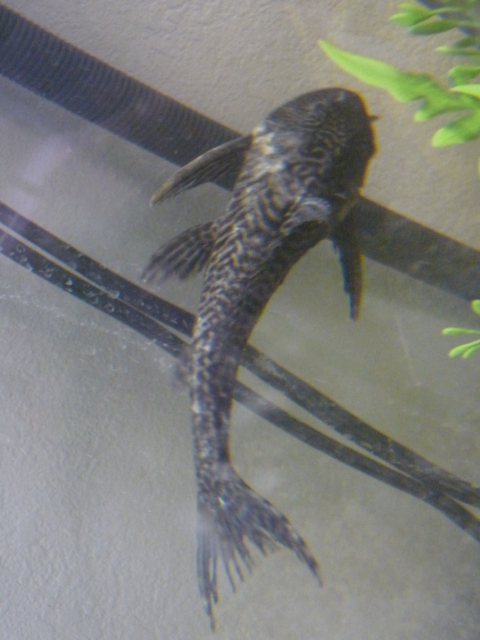 Plecostomus still sick
Question
sick pleco
I have a 70 Gallon tank 4 large tin
Plecostomus still sick
Question
sick pleco
I have a 70 Gallon tank 4 large tin
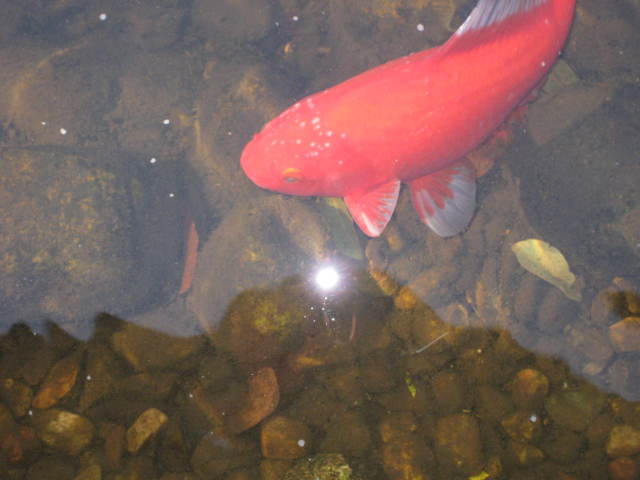 comet white spots
QuestionComet
QUESTION: I have a comet (for abou
comet white spots
QuestionComet
QUESTION: I have a comet (for abou
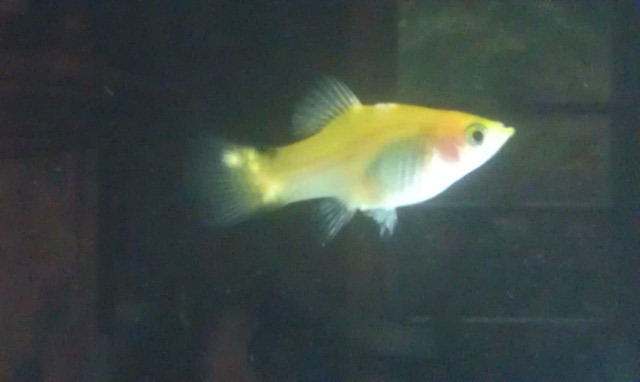 Large white patches
Question
Yellow Platy with spot
Ive had this fem
Large white patches
Question
Yellow Platy with spot
Ive had this fem
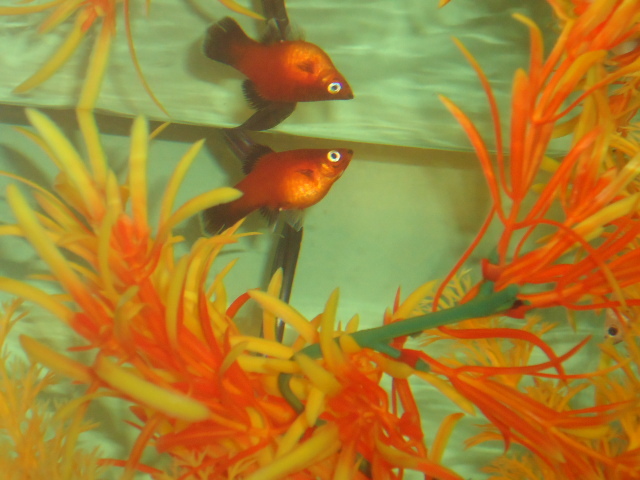 pregnant red wag platy?
Question
my red wag
my name is candace and I hav
pregnant red wag platy?
Question
my red wag
my name is candace and I hav
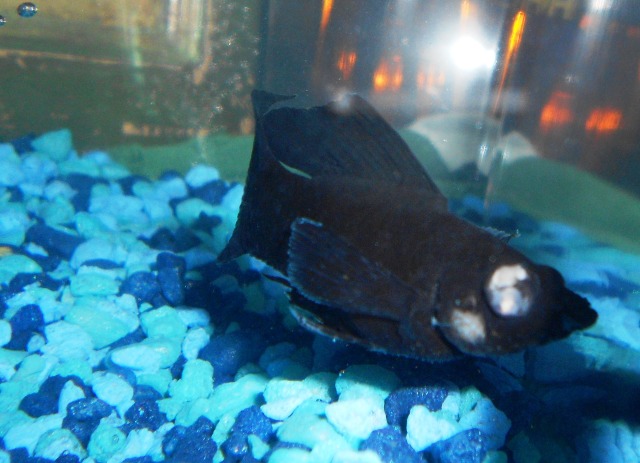 Apparent Pop-eye in Adult Lyre Tail Dalmation Molly
Question
My Black Lyre Tail Dal
Hi,
I have a b
Apparent Pop-eye in Adult Lyre Tail Dalmation Molly
Question
My Black Lyre Tail Dal
Hi,
I have a b